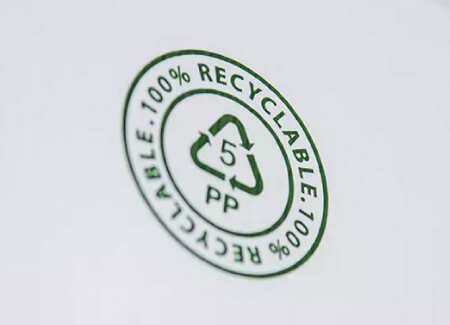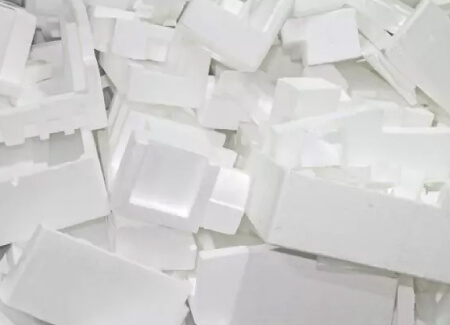Why is EPS used?
EPS is a strong material, it can hold and protect large quantities and weights of varying products while remaining lightweight. It has exception thermal conductivity properties which are especially important in the chilled and frozen foods sector and it remains strong and durable even when wet. But despite these properties, ESP is becoming less of a go-to material for many companies.
EPS is harmful for the environment
EPS is made from the extraction of crude oil, through the process of distillation and hydrocarbon separation EPS is created. Through this process the raw material is compacted into beads, these are small closed cells that hold air in their interior. This manufacturing process is not eco-friendly, transforming crude oil into other materials releases toxins into the atmosphere that is dangerous for human and ecosystem health. Although EPS packaging does have the possibility to be recycled, it must be taken to a specific drop off location for recycling to be handled correctly.
For these reasons, businesses are seeking a more sustainable packaging solution and also one which is more aesthetically pleasing.
An eco-friendly alternative to EPS.

Polypropylene is an alternative packaging solution to EPS.
While EPS has always been deemed as the king of insulation properties and therefore a winner for the produce and seafood industries, Tri-pack’s polypropylene packaging reigns supreme. In a series of carefully measures tests, Tri-pack’s patented duel, sealed-edge technology traps air between the layers creating a barrier to the environment. This protects the contents from not only dirt and dust, but temperature changes also. In a complete cold-chain, Tri-pack packaging will keep produce fresher for longer.
Just like EPS, Tri-pack packaging can be formed into different shapes and sizes dependant on the goods to be stored and transported, their flagship products include 25kg salmon boxes. This EPS alternative can also be printed on, adding value to the product through the use of branding and sales messages. Many suppliers using Tri-pack’s product also print recyclable messages on their packaging as an aid to the end consumer.
In addition to excelling on the properties of EPS, Tri-pack packaging is also flat-packed. This is a preferred choice when it comes to the reduction of transport and shipping costs. The packaging can be purchased in bulk and a single pallet can hold 70% more packaging than standard EPS. In one quick pop-up movement, the packaging is fully erect and ready to store the goods set for transport.
If you would like to learn more about Tri-pack’s environmentally friendly alternative to EPS, contact us today.

